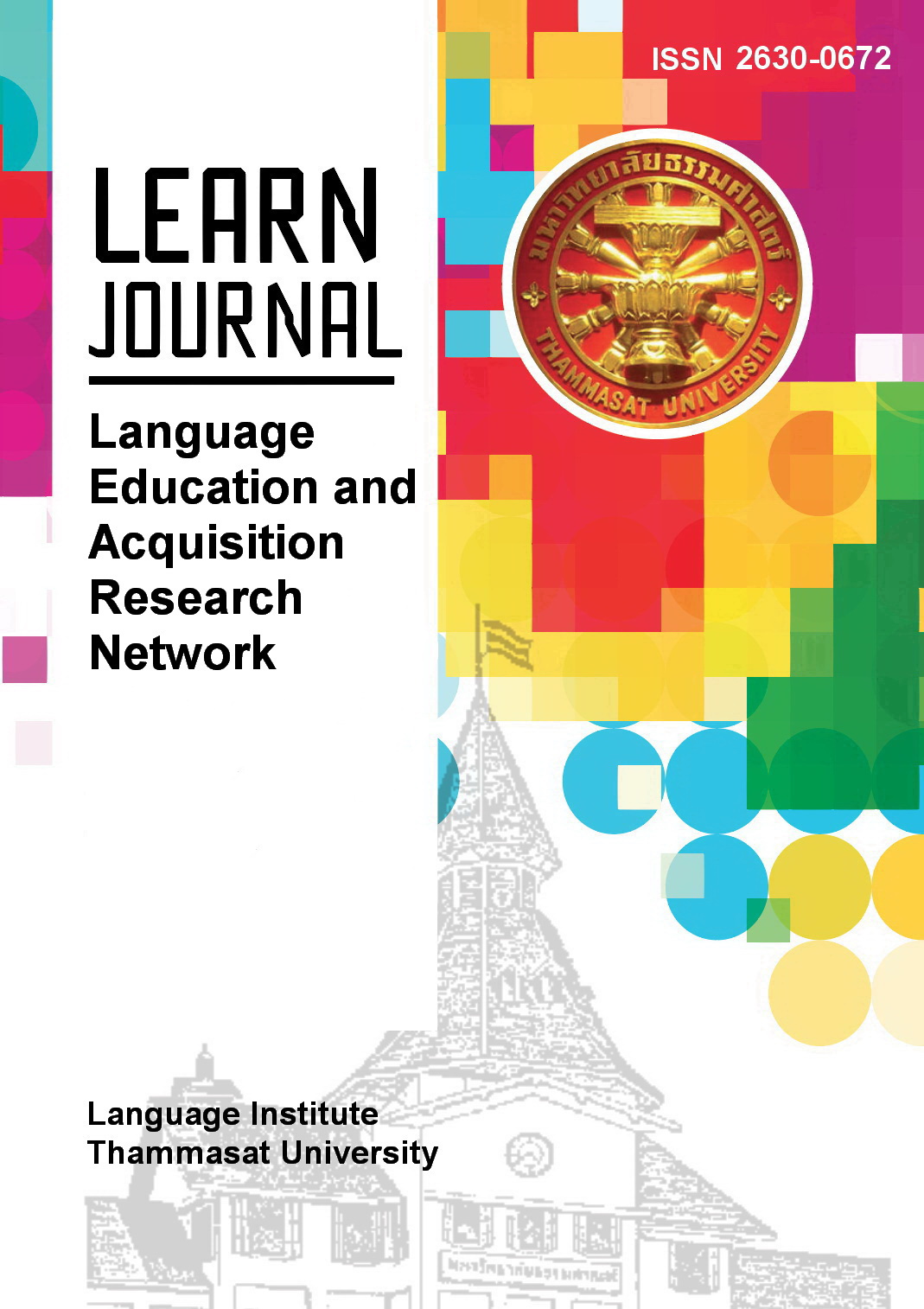Exploring Thai EFL Learners’ Attitudes Toward the Use of Mobile Applications for Language Learning
Main Article Content
Abstract
Mobile applications in smartphones have been used pervasively for various purposes, including language learning enhancement. Therefore, this study attempted to examine Thai EFL (English as a foreign language) learners’ attitudes toward their use of mobile applications for language learning and to investigate significant differences regarding their attitudes in terms of their language proficiency levels. This study also sought to explore the extent to which mobile applications were used to support language learning. To determine the attitudes, a total of 175 first-year university students were asked to complete the questionnaire adapted from the Mobile Learning Perception Scale (MLPS) proposed by Uzunboylu and Özdamlı (2011). The obtained data was analyzed using descriptive and inferential statistics. Based on the findings, students showed overall positive attitudes toward the use of mobile applications to support their language learning. The findings also revealed there were no statistically significant differences between students’ attitudes according to their language proficiency levels. Additionally, it was found that most students regularly practice their listening skill with mobile applications, and Facebook is the most favourite online learning source. Guidance from instructors on how to use applications effectively and properly should be provided, following the fact that students positively accept mobile applications as learning tools.


